As a BetterHelp affiliate, we receive compensation from BetterHelp if you purchase products or services through the links provided
Stress has several effects on the body, impacting your health. It’s often the cause of symptoms like headaches, sleeping problems, fatigue, lower immunity levels, and even upset stomach, causing sufferers to have general symptoms of being unwell.
Without treatment, stress can lead to heart disease, stroke, high blood pressure, diabetes, and obesity.
Learn more facts about stress, helping you understand its impact on your health and how to prevent it.
Surprising Stress Facts
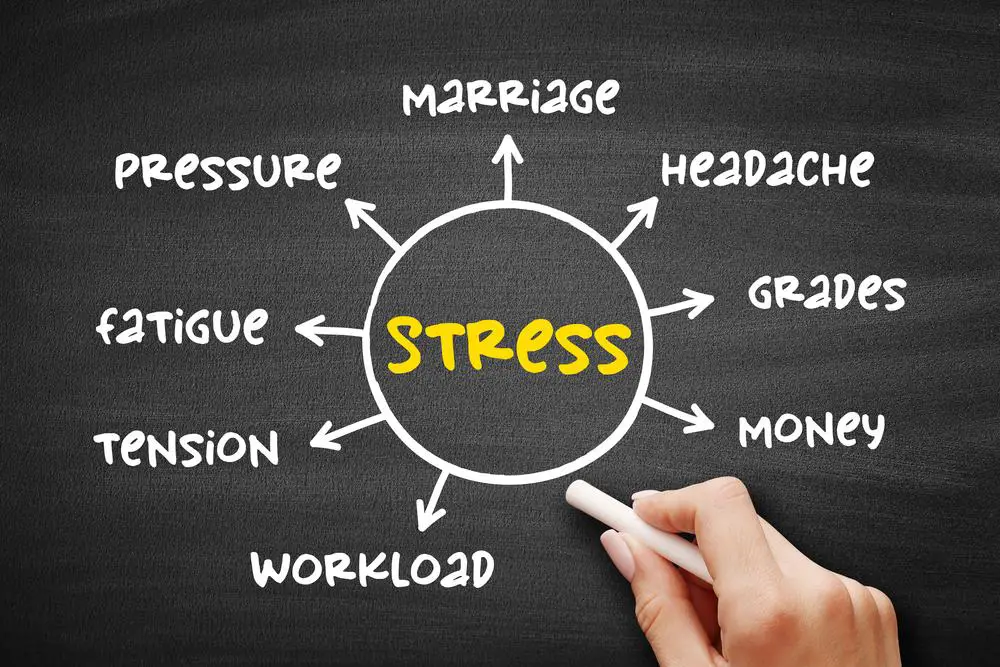 Stress acts like a trigger to the body’s fight-or-flight response, negatively impacting your health. The dangers of stress have been proven and recorded by researchers. Some surprising facts about stress include the fact that people with moderate to higher levels of stress have a higher mortality rate than others.
Stress acts like a trigger to the body’s fight-or-flight response, negatively impacting your health. The dangers of stress have been proven and recorded by researchers. Some surprising facts about stress include the fact that people with moderate to higher levels of stress have a higher mortality rate than others.
Stress-related issues like anxiety, insomnia, high blood pressure, constipation, and even acne are the causes of more than 75% of doctor visits in the United States. Research from the UK shows that Europeans lose 13.5 million workdays from stress created by employment factors like no outlook for better job satisfaction or the fear of being fired.
Unfortunately, long-term stress also affects people’s love lives. Since it exhausts the body and mind, long-term stress reduces testosterone levels in men, affects women’s menstrual cycles, and increases menopausal symptoms. Therefore, due to stress, 15% of adults in America claim problems with their sexual relationships. After all, when you are in survival mode, the body cannot think about procreation!
Stress hormones (adrenalin and cortisol) from the hypothalamus in the brain cause the fight-or-flight response of stress to prepare and protect your body for a quick reaction in an emergency. The body’s response includes quick breathing, a racing heart, tightened muscles, and lower libido because of the increased cortisol. However, when the body feels the stress response constantly because of continual stress triggers, it can place your health at risk.
It’s natural for anyone to feel stress sometimes since it’s a normal reaction to our responsibilities. When felt short-term, stress can have benefits, but if it’s continuous, then it will cause symptoms like:
- Anxiety
- Irritability
- Headaches
- Depression
- Insomnia
Quick Stress Facts
Disturbmenot researches and reviews mattresses, pillows, and other sleeping devices. In this blog, the reviewers provide some stress facts from various sources.
Here are more quick facts about stress that may interest you:
Fatigue and Chronic Stress – The most prevalent symptom of people with chronic stress is constant tiredness, also known as fatigue. Data from the American Institute show that 51% of adults with chronic stress experience fatigue.
Headaches and Muscle Tension – 44% of adults with chronic stress experience headaches, while 30% have muscle tension or pain. Both conditions are caused by extended periods of tensing the head, neck, and shoulder muscles, which people with stress often do.
Constipation and Digestive Issues – Evidence shows that the brain and the gut are connected. When stressed, the brain produces adrenaline, cortisol, and serotonin (the hormone known for affecting mood). Serotonin affects the gut, and one study showed that people with constipation often experience stressful life events. Diarrhea, nausea, and IBS (Irritable Bowl Syndrome) are other physical symptoms of stress that affect digestion.
Heart Disease – The release of stress hormones by the body constricts the blood vessels, leading to high blood pressure. They also increase heart rate. Both these symptoms, when felt regularly, can lead to a higher risk of heart disease and strokes. Studies from Hopking Medicine show that people with constant stress have a 20% higher risk of getting heart disease.
Lesser-known Stress Facts
 Most of the stress facts mentioned above are well-known. Here are a few lesser-known facts about stress that will interest you:
Most of the stress facts mentioned above are well-known. Here are a few lesser-known facts about stress that will interest you:
Women Experience More Stress Symptoms
When it comes to experiencing physical symptoms of long-term stress, women differ from men since they are more likely to experience depression and anxiety. Even though the reasons are not fully understood yet, it appears that there’s a difference in the way stress hormones get processed by the bodies of women and men. Additionally, women are more likely to visit a doctor for or report stress-related symptoms.
Feeling Hot and Bothered
Stress causes blood pressure to rise, and that’s why you feel hotter when stressed. Your body reacts to the added heat by sweating, particularly in the armpits, the forehead, and the groin. You may feel dizzy, shaky, and off balance.
Oversleeping
Most people with chronic stress complain of insomnia. However, some people complain of constantly feeling sleepy, especially during the day.
Acne Breakouts
Another common complaint of people with long-term stress is suffering from acne breakouts since it often triggers an increase in corticotropin-releasing hormone (CRH) and sebum. These lead to oily skin, making it more prone to acne. However, researchers also suggest that constant stress leads to people touching their faces more, which may also contribute to breakouts. Stress generally increases the inflammatory response, making people prone to other skin conditions like rashes.
Weight Gain
The hormonal changes caused by stress have several effects that can lead to weight gain. Firstly, these changes cause increases in blood levels of sugar and insulin, often causing fat accumulation. However, these hormones also affect how people perceive hunger or satiety. Unfortunately, stress also affects the cognitive process of self-regulation, leading to emotional eating. Interestingly, 49% of women report eating more junk food when stressed, as opposed to 30% of men.
Fascinating Stress Facts
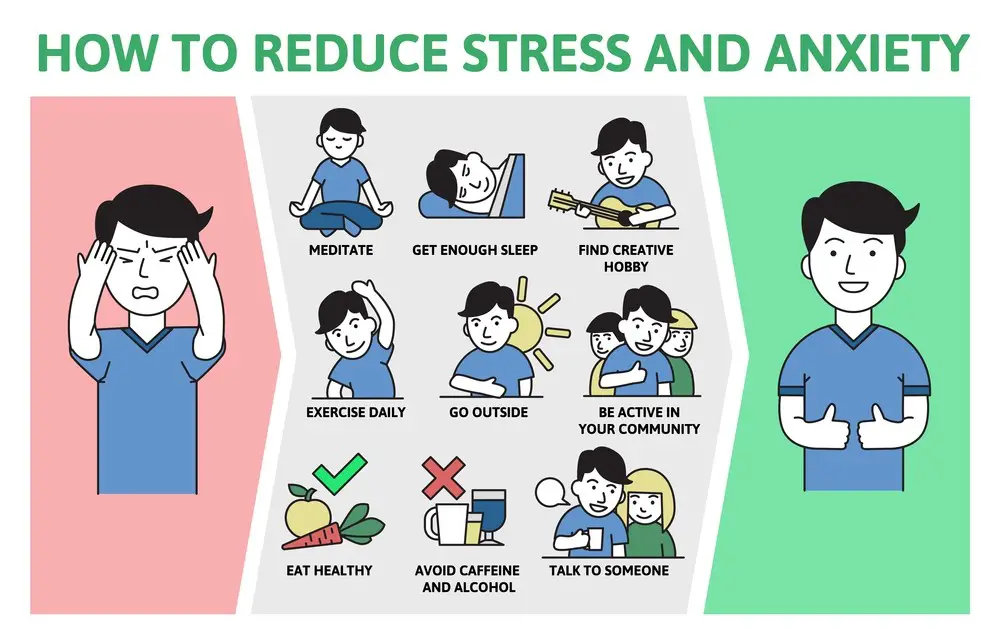 Since gender affects stress, here are some more fascinating facts about stress:
Since gender affects stress, here are some more fascinating facts about stress:
- Girls are more likely to experience psychological stress than boys.
- 76% of men report that their work causes them the most stress, whereas more women report money concerns as their primary source of stress than men (68% and 61%, respectively)
- Statistics show that 33% of married women experience high-stress levels compared to 22% of unmarried women.
- Insomnia affects women more than men, meaning that 49% have trouble falling asleep.
- According to data, sleep is crucial to 75% of women but only to 58% of men.
Must-Know Stress Facts
Dealing with stress is critical. You can immediately improve the symptoms and your long-term health by reducing it. When discussing facts about stress, it is essential to include these must-know stress facts:
Following a Vegan Diet and Stress

Researchers have found favorable statistics about those following a vegetarian, Mediterranean, or vegan diet, saying these help decrease stress. Omitting or decreasing dairy, meats, and poultry from the diet has several benefits because you will eat more natural foods that contain antioxidants and fiber. A vegan diet’s higher content of vitamins and minerals reduces damage from free radicals.
Exercise Reduces Stress
It’s critical to note that 30% of people who exercise regularly report feeling less stressed. Therefore, daily exercise helps counteract the effects of a sedentary lifestyle, boosts mood, and reduces stress. Unfortunately, one survey found that only 17% of Americans exercise daily. You don’t need to go to the gym to exercise; a brisk walk of about 20 minutes daily is enough to relieve your stress.
Alcohol Consumption
About 60% of adults between 18 and 75 in the UK reported drinking alcoholic beverages when dealing with stressful life events. However, you may not know that alcohol may have a short-term effect on helping you deal with stress, but its use increases anxiety and depression.
Yoga’s Positive Effect on Stress

An incredible 85% of people practicing daily yoga report feeling less stressed. Yoga’s principles of balancing the mind and body create an excellent connection that helps manage and reduce stress levels.
Interesting Stress Facts
So far, we have mentioned several stress facts. However, here are more interesting facts about stress you should know:
Stress Weakens the Immune System – Stress plays a significant role in constantly getting sick, according to one study. Researchers studied a group of older people who had the flu vaccine. Those with chronic stress had a weakened immune response to the vaccine. Therefore, it solidifies the association between stress and lowered immunity, harming the body’s ability to fight infections. A weak immune system may also increase the risk of other physical conditions like cancers and diabetes, but also several mental conditions like depression and anxiety.
Stress and Memory – Another area that stress affects considerably is remembering things. If stressed, you may have difficulty recalling details, both long-term and in the moment. You may also feel that you cannot make decisions or have brain fog. These are all caused by the stimulation created in the brain from chronic stress or a single stressful event. The release of hormones impedes the brain’s ability to create new memories.
Stress and Worsened Allergy Symptoms – People with allergies already have a lot to deal with since they may have a constant cough, runny nose, or teary eyes. Unfortunately, physical and mental stress can amplify these symptoms since doctors think the hormones released increase the immune system’s response to allergens.
Essential Stress Facts
 What you can do about stress? Here are some essential facts about stress to help you reduce your levels and protect your long-term health.
What you can do about stress? Here are some essential facts about stress to help you reduce your levels and protect your long-term health.
According to the American Psychological Association, several interventions can help boost your physical and psychological health:
Identify the Cause
You may not know what causes your stress. You should start monitoring the cause, how you feel, and your mood after events and writing them down. Once you know which incidents trigger your stress, it’s easier to address the cause. For example, if you have more commitments than time, and you notice that you are having difficulty meeting them all, list your priorities and see which tasks you can eliminate or get help with.
Build Solid Relationships
Relationships can affect your stress levels – in a good and bad way. For example, a fight with your spouse can raise stress levels. If you have caring friends and family, when you feel stressed, you can reach out to them for support and a fresh perspective.
Walk Away from Stress
It’s not uncommon for people to have a reaction they may regret when faced with a stressful situation. For example, if your boss gets angry about something that isn’t your fault, ask for a few minutes before continuing the conversation. Walk away, calm down, and then come back to discuss the issue. Remember that daily exercise, even a walk, is a beautiful way to relieve stress, so deal with any situation by doing a physical activity you like.
Give Your Mind a Rest
Getting enough sleep is not the only way to give your mind a break. Also, reduce caffeine consumption and avoid distractions like TV and social media before bed. Meditation, yoga, breathing exercises, and mindfulness are great ways to reduce stress, helping benefit your health.
Get Assistance
If you are still experiencing stress after trying these steps, consulting with a licensed mental health professional can provide support and help put things in perspective, enabling you to learn how to manage stress effectively.
Incredible Stress Facts
 Knowing these incredible stress facts can help you understand stress and its effects on your physical and psychological well-being. Today, everyone feels the effects of stress, even younger children and students.
Knowing these incredible stress facts can help you understand stress and its effects on your physical and psychological well-being. Today, everyone feels the effects of stress, even younger children and students.
Considering that most doctor visits in the United States are related to stress in some way, it’s evident that it significantly impacts people’s lives. Whether you feel external or internal pressure, these facts about stress show how important it is to identify and deal with it.
- 7 Ideas to Help You Relax and Unwind on a Family Vacation - April 27, 2025
- How Having Cybersecurity Protection Helps You Relax - April 25, 2025
- 8 Reasons Why Spending Time Outside Calms You Down - April 25, 2025
This site contains affiliate links to products. We will receive a commission for purchases made through these links.


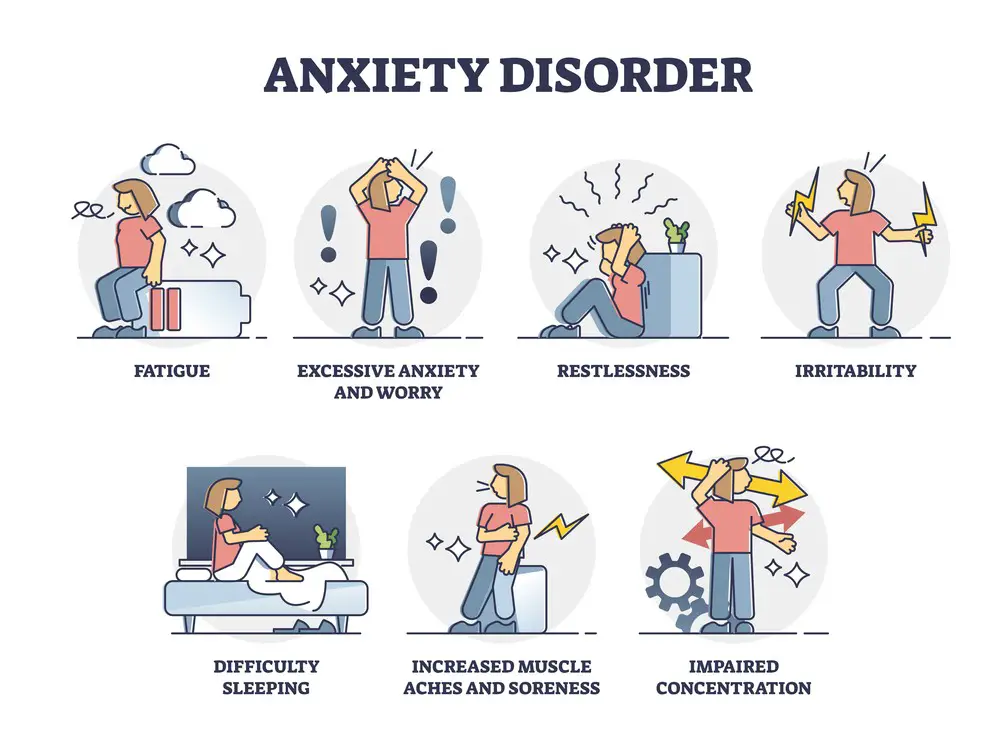 In the maze of mental health,
In the maze of mental health,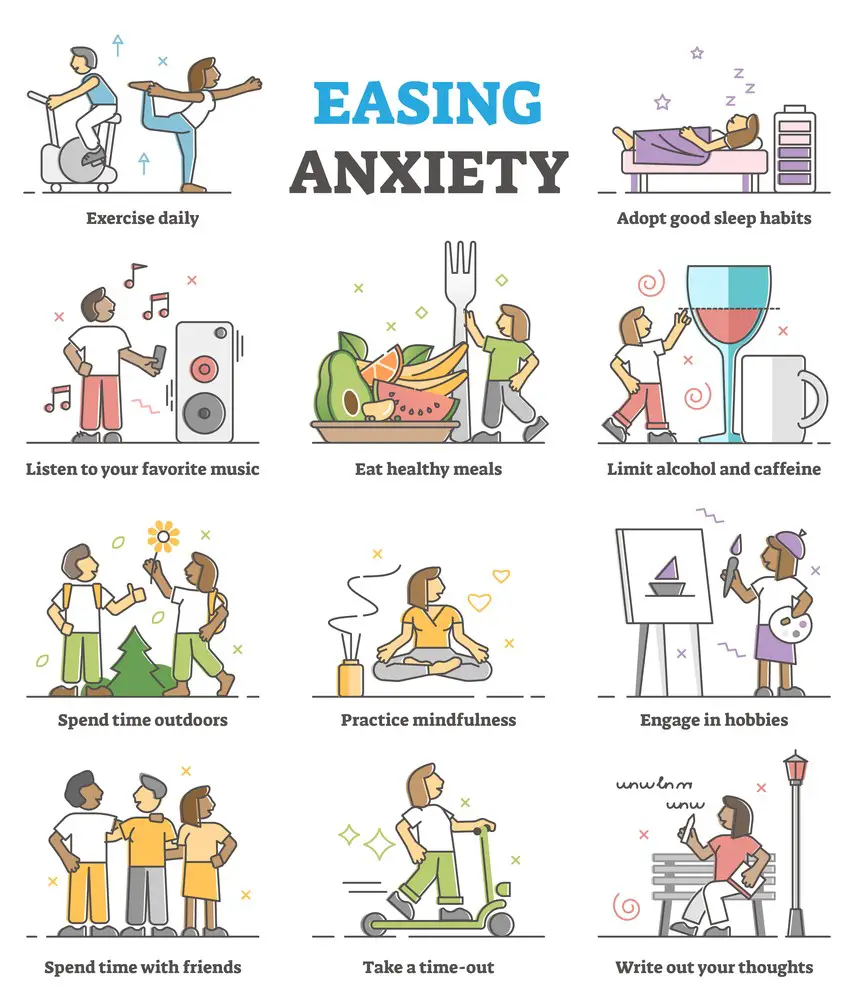 Navigating the Shadows: Understanding Stress and Depression
Navigating the Shadows: Understanding Stress and Depression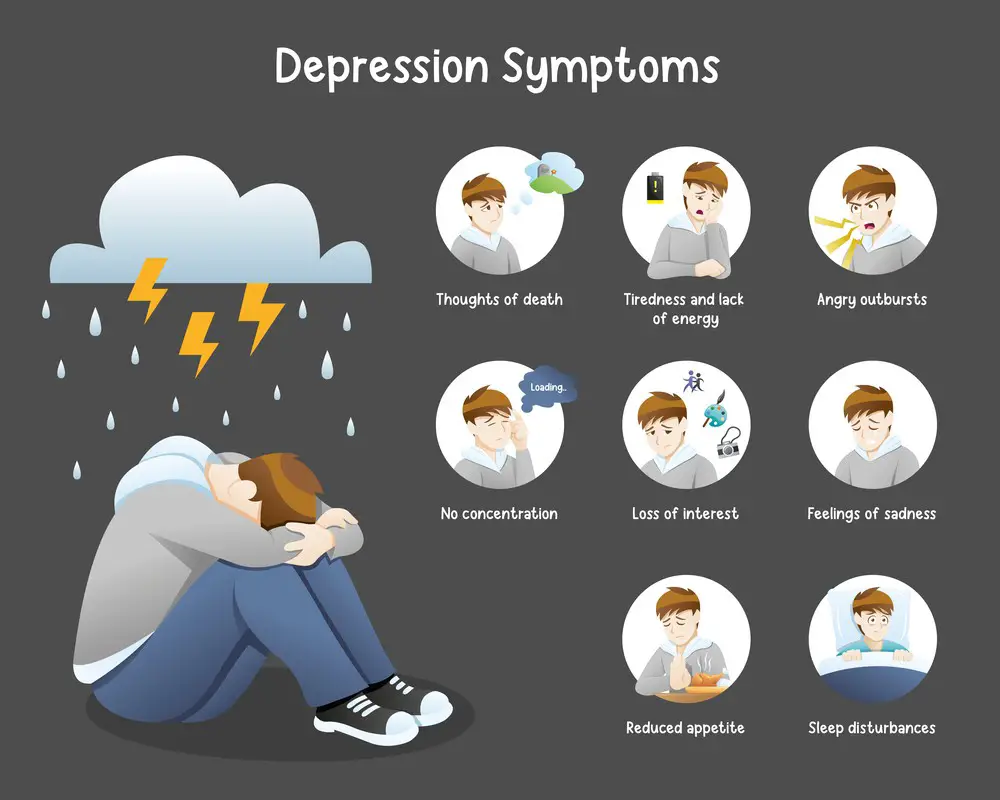 Stress and depression, though distinct, can sometimes walk hand in hand in the journey of mental health. Understanding their differences and how they intertwine is key to managing them effectively. Let’s delve into their unique characteristics and their complex relationship:
Stress and depression, though distinct, can sometimes walk hand in hand in the journey of mental health. Understanding their differences and how they intertwine is key to managing them effectively. Let’s delve into their unique characteristics and their complex relationship: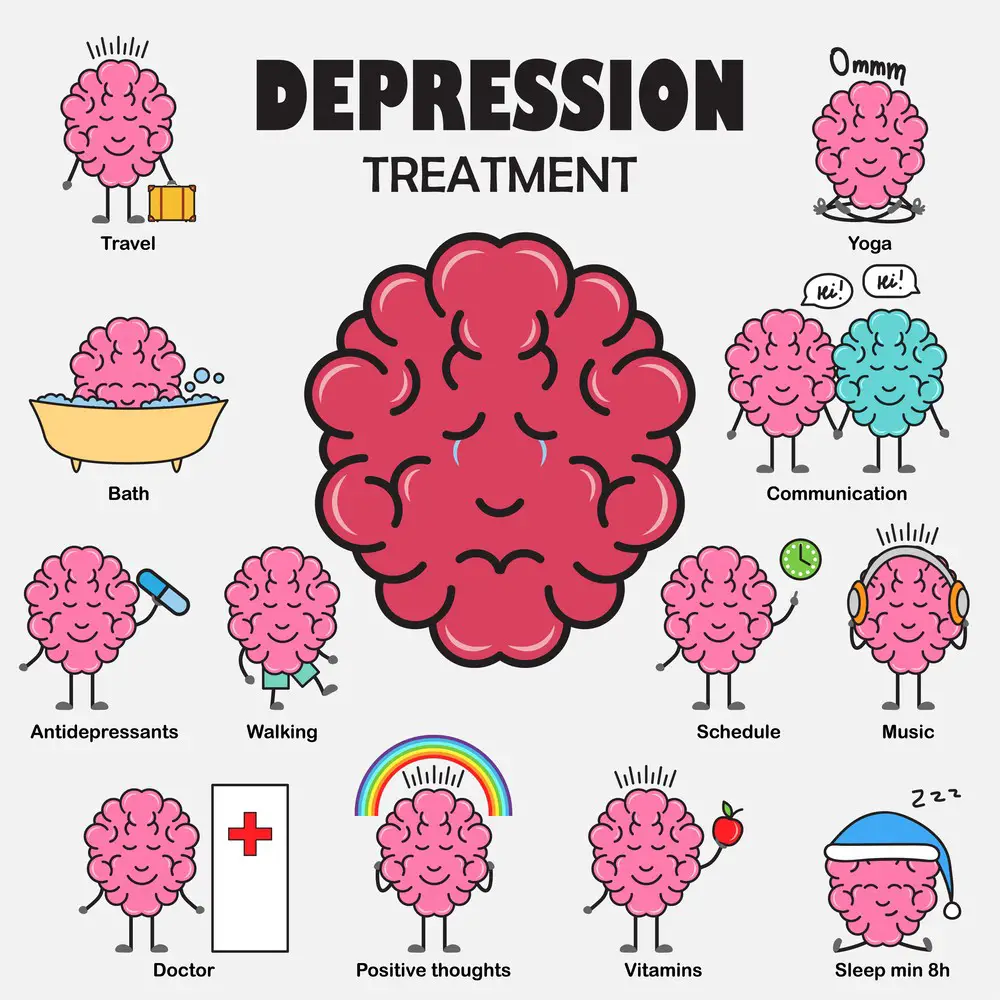 Decoding the Signals: When to Seek Help for Stress
Decoding the Signals: When to Seek Help for Stress Stress is inevitable, but how do you know when it’s more than just a rough day? Recognizing the signs that indicate your stress might need professional attention is crucial. Here’s how to decode these signals:
Stress is inevitable, but how do you know when it’s more than just a rough day? Recognizing the signs that indicate your stress might need professional attention is crucial. Here’s how to decode these signals:
